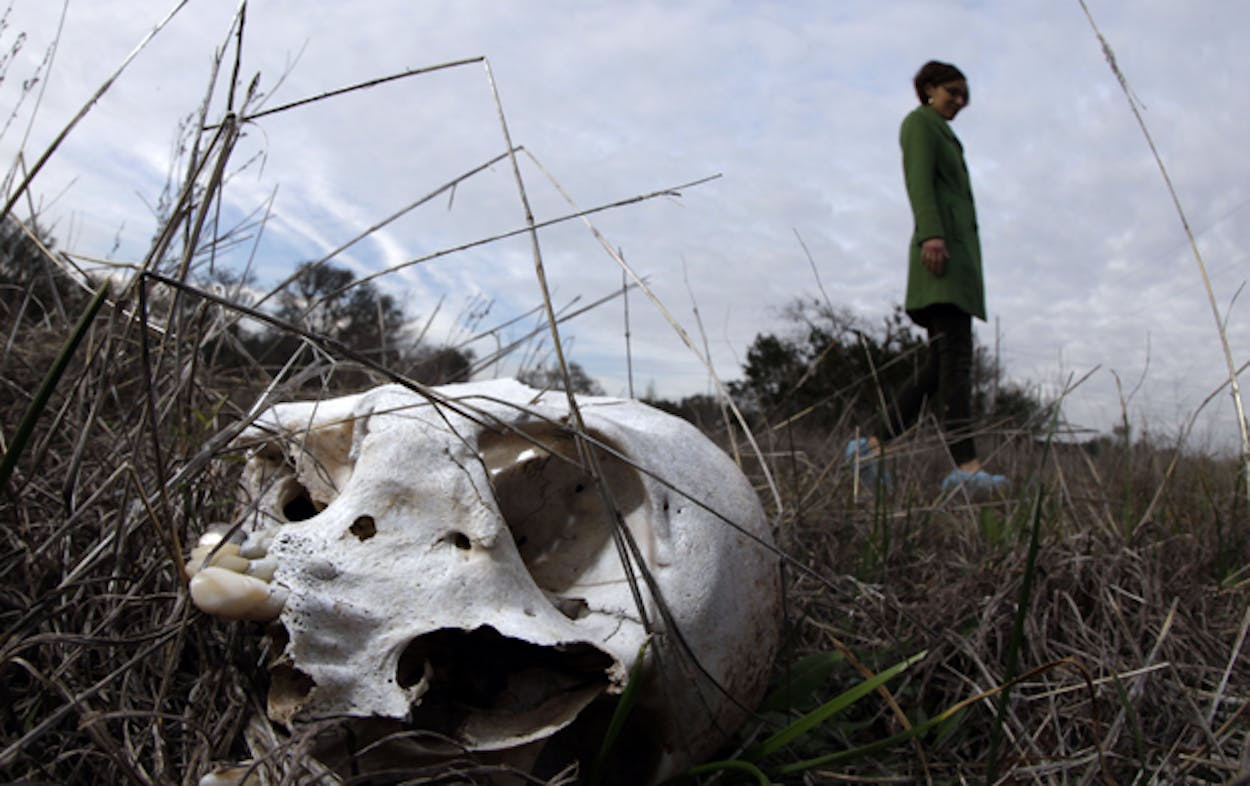When people think of donating their bodies to science, they probably do not envision that their corpses would be pecked apart by vultures.
But that is what happened to one Austin woman, 72-year-old Patty Robinson, who left her body to researchers. Her remains (and those of six other people) were used in a Texas State University study that is examining the process of human decomposition.
“The findings are upending assumptions about decay that have been the basis of homicide cases for decades,” Michael Graczyk of the Associated Press wrote.
The body was left in Texas State’s “body farm,” a 26-acre secluded field near the university. After five weeks “a frenzied flock of vultures descended on the corpse and reduced it to a skeleton within hours,” Graczyck wrote. This calls into question the timelines forensic investigators have used for years in homicide cases to determine time of death. Time of death is “a key piece of evidence that influences the entire investigation, often shaping who becomes a suspect and ultimately who is convicted or exonerated,” Graczyk wrote.
Using current guidelines, homicide investigators would assume such a clean skeleton belonged to a person who had been dead for six months.
“If you say someone did it and you say it was at least a year, could it have been two weeks instead?” Michelle Hamilton, an assistant professor in Texas State’s anthropology research facility, told Graczyk. “It has larger implications than what we thought initially.”
Robinson’s son, James, said his mother would be pleased by the nature of the research “if she could come back and see what she’s been doing.”
“We’re not a particularly squeamish lot,” he added.







